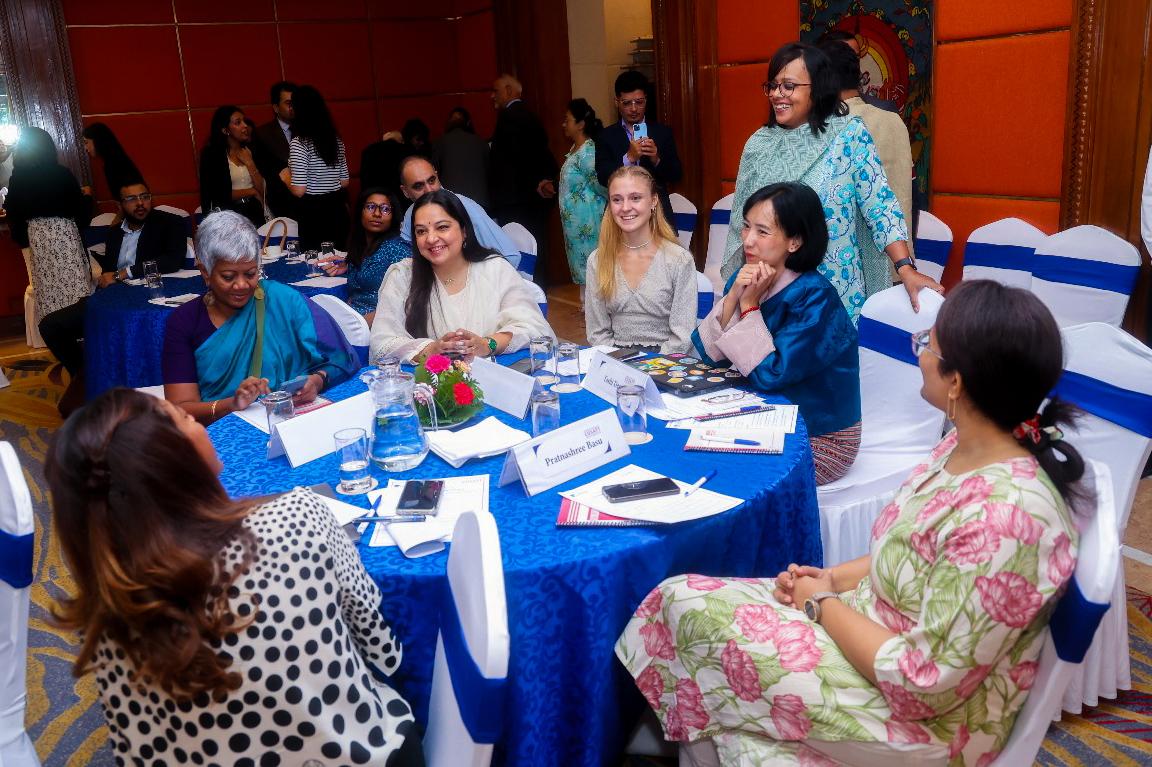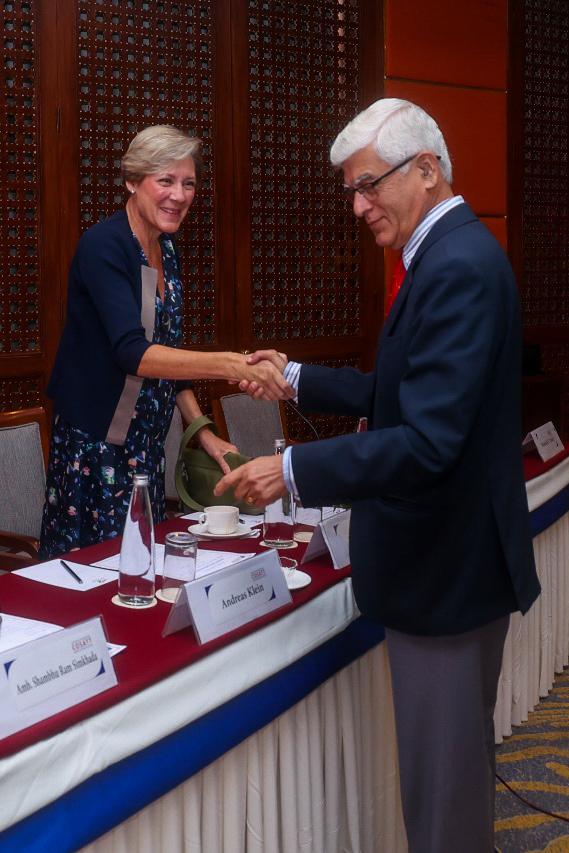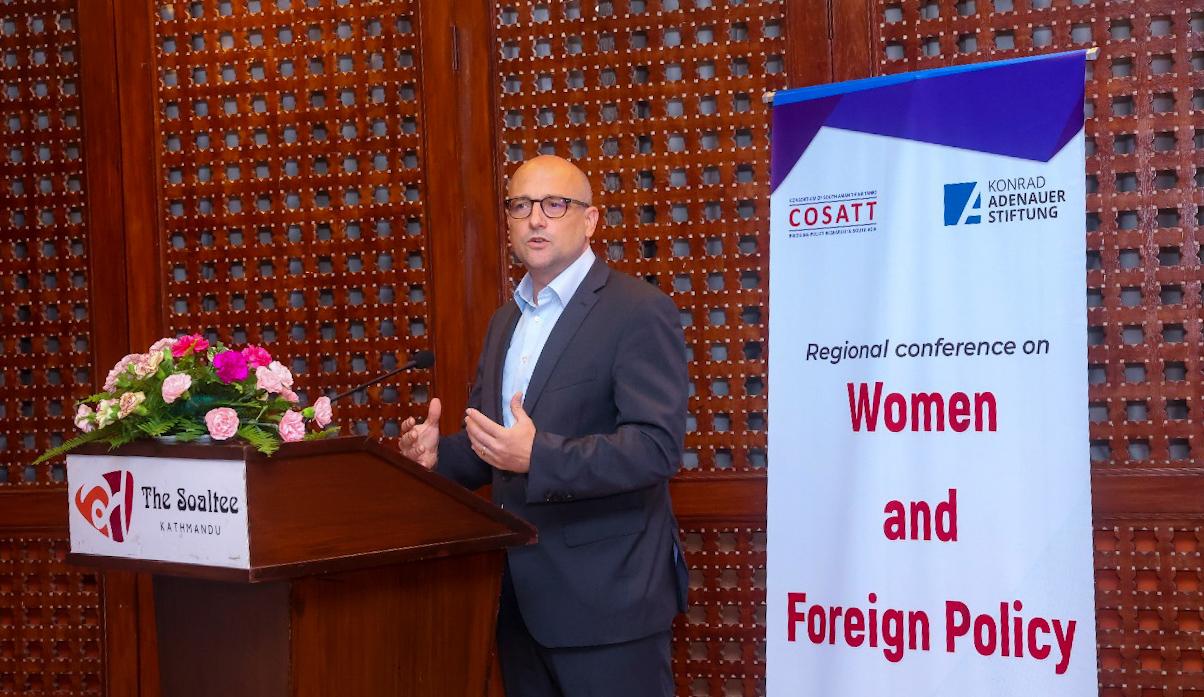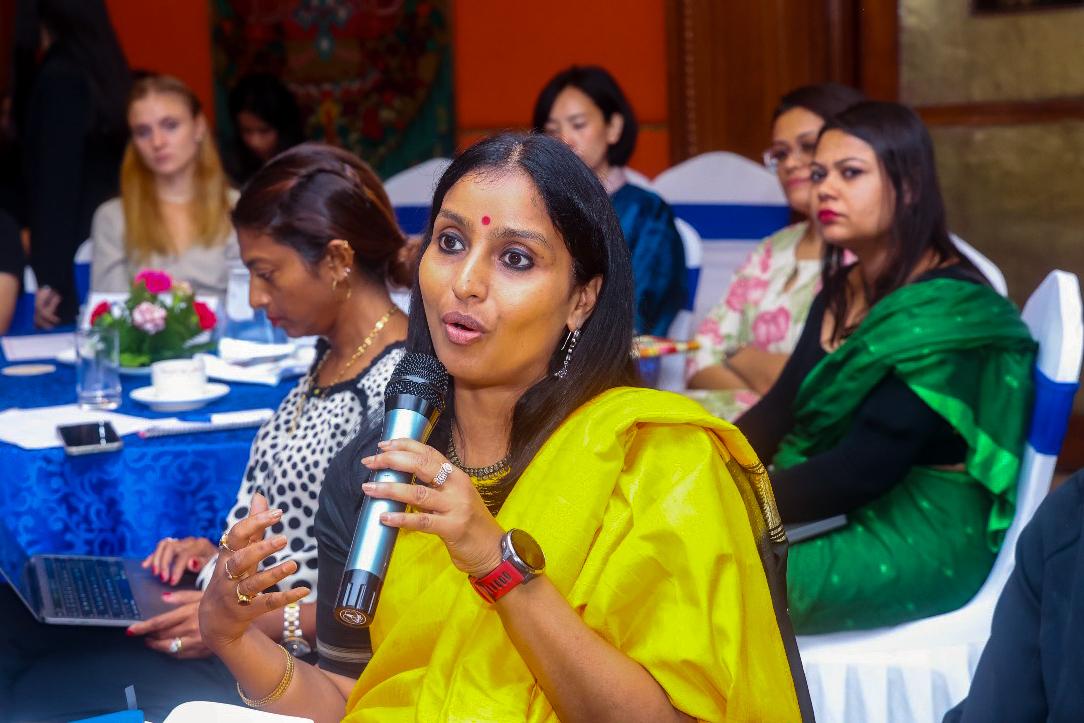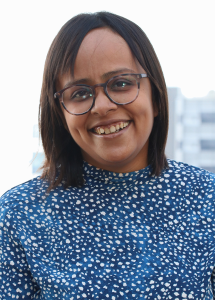This was the second time the Konrad Adenauer Foundation’s (KAS) Political Dialogue Asia organized such a gathering in collaboration with the Consortium of South Asian Think Tanks (COSATT), focusing on the role of women in foreign policy. Distinguished guests, including the EU Ambassador to Nepal, H.E. Véronique Lorenzo, and Dr. Shambu Ram Simkhada, Former Nepalese Permanent Representative to the United Nations, honoured the event with their presence, creating a vibrant platform for valuable exchange and networking.
Aiming to create a platform for female politicians, academics, journalists, and representatives of civil society organizations, the event provided an opportunity to share experiences, listen to opinions, and engage in discussions. Participants emphasized that the newly gained knowledge should be disseminated and have an impact beyond the COSATT network.
The conference commenced with Dr. Nischal N. Pandey, Convener of Consortium of South Asian Think Tanks (COSATT), welcoming the delegates and stressing the importance of incorporating a gender perspective into foreign policy discussions. Mr Andreas Klein, Director of the Konrad Adenauer Foundation's Political Dialogue Asia in Singapore, supported this approach, noting that female politicians worldwide face similar challenges and must show courage, regardless of nationality, to prove themselves in a male-dominated world.
The fact that women often have to invest more courage, energy and time to make themselves visible was also criticised by H.E. Véronique Lorenzo, the EU ambassador to Nepal who was the keynote speaker of the event. In her opinion, women should receive more respect in foreign policy to realise their full potential. For example, a woman tends to think more long-term than a man, which is an advantage in diplomacy, according to HE. Lorenzo. This sentiment was also echoed by Ms Eva Abdulla, former Deputy Speaker of the Maldives, who emphasized the need to examine the connection between public debt and gender equality, highlighting the importance of incorporating women's needs into these discussions. Dr. Shambu Ram Simkhada explained that women's tendency to think long-term and favour negotiation over competition can influence international relations and enrich traditional diplomatic practices.
After the welcoming remarks, Prof. Meena Vaidya Malla introduced the first discussion on ‘The Importance of Gender Equality in Foreign Policy.’ The panellists concluded that structural change is essential for achieving greater gender equality. Charu Pragya, a TV panellist for the BJP in New Delhi, cited the improvement of healthcare and education systems as the first step toward structural change. She emphasized that gender equality will only be possible long-term if efforts begin at the grassroots level and women are granted unrestricted access to infrastructure and education.
During the second discussion, participants debated whether to start at the grassroots level to support women's education or to implement legal quotas for women in politics, science, and corporations. The audience learned that quotas are a contentious issue across the region. Advocates of women's quotas argued that increased representation of women in politics, business, and academia would enhance awareness of female presence in society. Women in leadership roles are viewed as role models and inspirations for the younger generation. Pratnashree Basu, Associate Fellow at the Research Foundation Kolkata, supported this view, stating that the quality of women leaders will improve as their numbers increase. In contrast, Priyanthi Fernando, Executive Director of the Bandaranaike Centre for International Studies in Sri Lanka, criticized the excessive focus on numerical representation while structural problems remain unaddressed. Despite differing opinions on quotas, participants agreed that the presence of women enriches academia and diplomacy.
The significant role that women play in foreign policy and peacekeeping was highlighted in the third session of the day, moderated by Megha Sarmah, Programme Manager of the 2030 Agenda at KAS. Both DSP Rajani Thapa from the Armed Police Force Nepal and PhD student Rohini Reenum from the National Institute of Advanced Studies (NIAS), India, emphasized that women’s participation in peacekeeping is essential. They noted that integrating the female perspective is crucial for considering all stakeholders in peacekeeping operations. The assumption that women approach negotiations with empathy further underscores their importance in diplomacy.
However, women in foreign policy face several challenges, which were discussed on the morning of the second day of the conference. Restrictions on freedom of expression and freedom of the press hinder female scientists, politicians, and journalists from reaching their potential. Ayreen Khan, a TV journalist from Bangladesh, vividly illustrated her efforts to raise her voice and be heard. The COSATT and KAS network provided her with a platform to discuss the current political situation in Bangladesh and highlight the challenges faced by the country and its women.
At the end of the event, Dr Nischal N. Pandey invited participants to share their concluding remarks. There was a consensus that the ‘Women and Foreign Policy’ conference marked an important step forward toward gender equality. The platform provided by COSATT and KAS not only facilitated the exchange of experiences and opinions but also fostered a network for sharing enthusiasm, activism, and confidence that women are gradually gaining respect in foreign policy.
The event served as a vital networking platform, fostering community among women leaders and reinforcing the shared goal of advancing gender equality in foreign policy.



